Meet the mushroom with a mane, Hericium erinaceus, better known as lion’s mane. It’s a curious-looking mushroom that’s shaggy and resembles a lion’s flowing mane. Let’s journey through lion’s mane’s rich history and explore the research that’s bringing it into the spotlight. Whether you’re a seasoned myco-enthusiast or just mushroom-curious, stick around—there’s a lot to discover about this fungi.
An introduction to lion’s mane
Long treasured in traditional Chinese and Japanese medicine, lion’s mane has been brewed, cooked, and powdered for centuries to support everything from digestion to mental clarity. But this ancient fungus isn’t just a relic of the past. In recent years, modern science has taken a serious interest in lion’s mane, and the results are turning heads (and brains!). From its potential to support cognitive function and nerve regeneration to its antioxidant and anti-inflammatory properties, lion’s mane is earning its place as a go-to ingredient for brain and body health.
The science behind lion’s mane
Lion’s mane supports our bodies in many ways. Like most mushrooms, lion’s mane is known for its medicinal properties thanks to its composition. It contains active compounds like beta-glucans, triterpenoids, ergosterol and statins. These compounds help with immunity, are antibiotic and antiviral, and have powerful antioxidant and anti-inflammatory benefits. Lion’s mane mushrooms are also proven to support immune modulation, cytokine regulation, and free radical neutralization.
Brain health and cognition
Lion’s mane is often celebrated as nature’s brain food because of its powerful benefits for memory and overall cognitive function. Studies are underway to learn about its ability to help with improving cognition and mood. Research suggests it may stimulate the production of nerve growth factor (NGF), a protein that plays a key role in the growth and repair of neurons. This could mean sharper focus, better recall, and long-term support for brain aging and clarity.
Mental health
Lion’s mane doesn’t just support cognitive function—it can also play a role in mental well-being, mood balance and regulation. Ongoing research suggests it can help reduce symptoms of depression by promoting nerve growth and supporting a healthy brain environment, particularly in areas linked to emotional regulation.
Immune support
Lion’s mane offers support for the immune system, thanks to its rich supply of beta-glucans and compounds. Studies have shown that polysaccharides found in lion’s mane help nourish beneficial gut bacteria, supporting a healthy microbiome through the gut, where much of your immune response begins.
Anti-inflammatory benefits
Lion’s mane also contains powerful bioactive compounds, including polysaccharides and erinacines, that have been shown to help reduce inflammation in the body. These compounds may inhibit the production of pro-inflammatory molecules, helping to calm chronic inflammation that can contribute to issues like brain fog, joint discomfort, and immune imbalance.
Adding lion’s mane to your daily routine
Incorporating lion’s mane into your daily routine is easier than you might think. It’s often used in recipes as a meat substitute because of its mild, seafood-like flavour and meaty texture. You can use it in recipes for tacos, soups, and stews, or simply try sautéing it in a little butter. This mushroom can also be consumed in powder form and added to your coffee or smoothies. However you take it, consistency is key to feeling the long-term benefits.
Supplementing with lion’s mane
When choosing a medicinal mushroom supplement, it’s best to read up on product sourcing and ingredients to find the best fit for you. While the entire mushroom can be used, some supplements only use the fruiting body extracts (from the cap and stem), the mycelium (the root system), or a combination of both. The extraction method also plays a key role, with the most common methods being alcohol extraction and hot water extraction. When combined, the mycelium and fruiting body extract ensure you get a highly potent dose of powerhouse antioxidants, filled with all the beneficial compounds to support your health goals.
CanPrev’s Lion’s Mane Full Spectrum 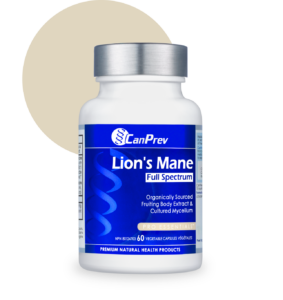
Our daily lion’s mane supplement is made with organic mushrooms sourced from both the mycelia and fruiting body. CanPrev’s fruiting body extracts utilize both hot water and alcohol extraction methods to maximize the bioavailability of active compounds found in the fruiting body of the mushroom. They’re guaranteed to contain key bioactive compounds, using industry-leading “fingerprinting” testing. Combining the mycelium and fruiting body extract means you get the full spectrum of medicinal compounds for a full spectrum of benefits. It’s a simple dose of one capsule per day, delivering 250mg of lion’s mane fruiting body extract and 200mg of lion’s mane mycelium.
More than just a pretty fungus
Whether you’re looking to sharpen your focus, support your memory, or soothe your nervous system, lion’s mane might just be your mushroom. From ancient healing traditions to today’s neuroscience labs, this mighty mushroom is earning its crown. Add lion’s mane as part of your daily health routine and let your body roar.
Sources:
Immunomodulatory effects of Hericium erinaceus derived polysaccharides are mediated by intestinal immunology
Composition and antioxidant activity of water-soluble oligosaccharides from Hericium erinaceus
The Acute and Chronic Effects of Lion’s Mane Mushroom Supplementation on Cognitive Function, Stress and Mood in Young Adults: A Double-Blind, Parallel Groups, Pilot Study
Neurotrophic properties of the Lion’s mane medicinal mushroom, Hericium erinaceus (Higher Basidiomycetes) from Malaysia
Therapeutic Potential of Hericium erinaceus for Depressive Disorder
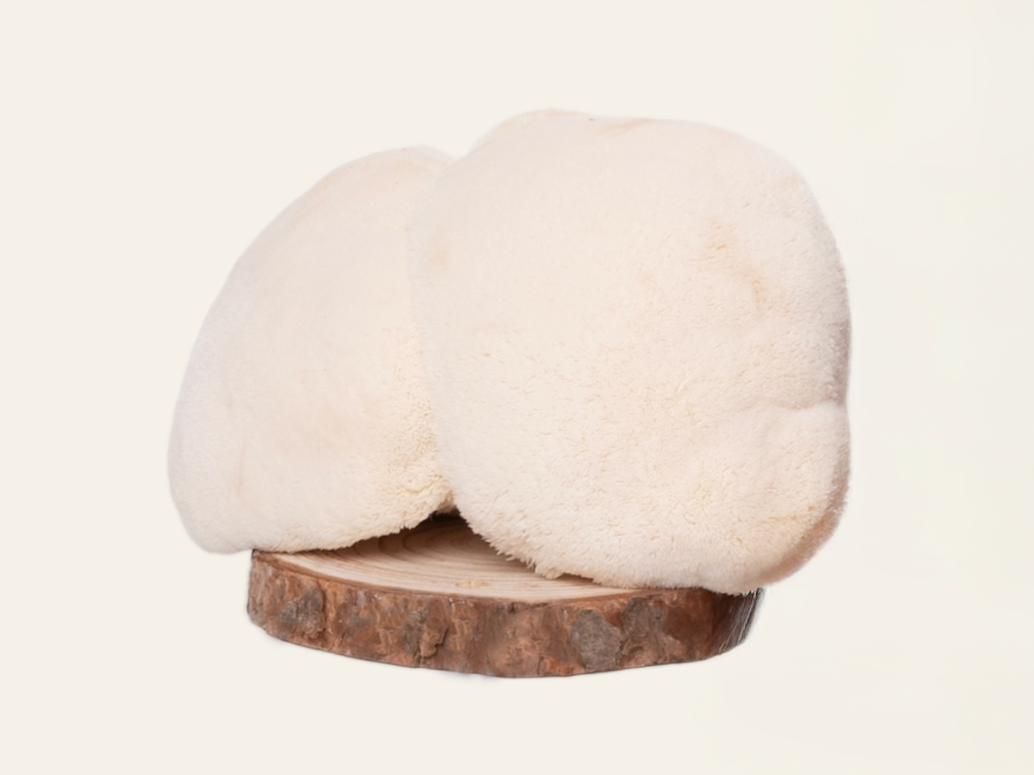
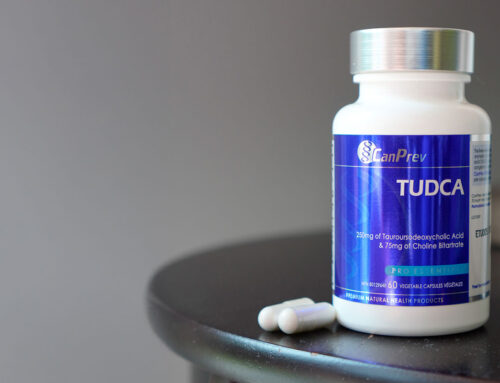

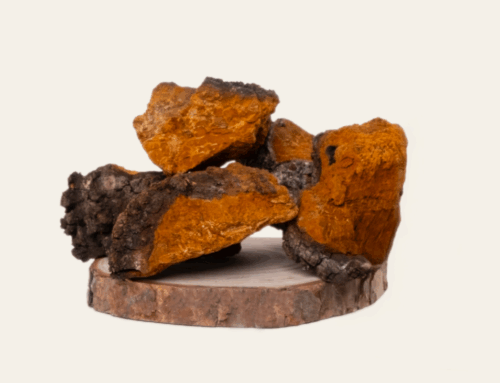

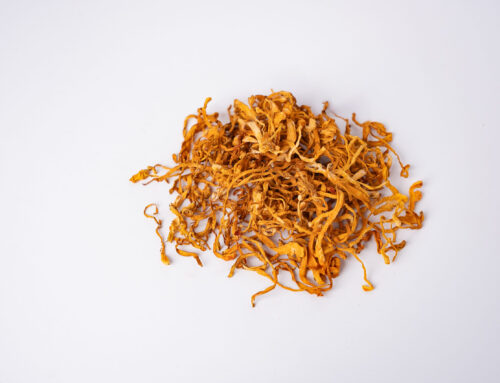

Leave A Comment